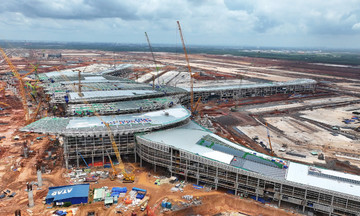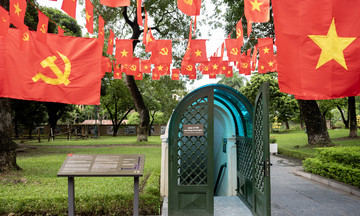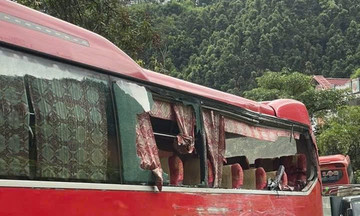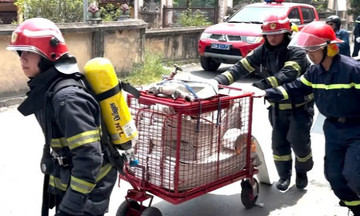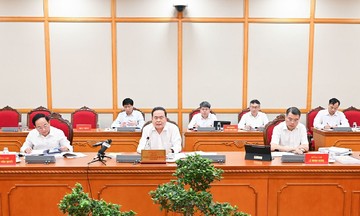Starting 1/8, Ho Chi Minh City launched the first phase of its location-independent administrative procedure system, covering 1,335 out of 2,168 total procedures handled by one-stop shops. Residents and businesses can now submit and receive results at any convenient location, regardless of their residence or registered business address. The city aims to apply this system to all procedures by the end of the year.
The city has established 38 additional local teams at commune-level public administration centers to support this initiative. These teams handle 1,182 procedures under the jurisdiction of departments and agencies, such as providing land data, issuing certificates for scientific and technological activities, and issuing badges for commercial transport vehicles. Commune-level procedures include 154 types, such as business registration and funeral expense support for social welfare beneficiaries.
The location-independent administrative procedure process involves five steps: receiving applications, processing and approval, digitizing results, transferring results, and delivering results. Processing times and fees remain unchanged. The key difference is that officials must digitize 100% of incoming documents. If a procedure requires paper documents, they will be sent via post or courier service on the same day.
After two weeks of implementation, Nguyen Thanh Sang, a document receiving officer at the Di An Ward Public Administration Center, reported that while the new system is more convenient for the public, receiving officers face significant pressure. Since the separation of administrative boundaries, many land documents still have to be transferred between wards by post due to a lack of data connectivity.
According to Sang, citizens are primarily concerned with the result delivery timeframe, while many cases require additional steps of sending, processing, and returning documents. "Citizens don't care about the internal process; if it's late, the receiving officer takes the blame," he said.
In Go Vap Ward, approximately 800 people visit daily for administrative procedures. Nguyen Chi Thanh, Deputy Director of the ward's Public Administration Center, stated that the staff are committed to serving everyone, but the biggest challenge is the lack of data connectivity between systems.
Thanh cited the business license application process as an example: after digitizing the documents, staff have to enter the data twice—once on the national public service system and again on the ministry's specialized software. "With so much information, the network often crashes, and the software has a 2-3 minute operation limit. If we stop to answer a citizen's question, everything is lost, and we have to start over. Some applications require 5-6 attempts to complete," he explained.
The digitization process also faces challenges due to a lack of equipment for scanning large-format documents and a shortage of digital signatures for staff. Some procedures, especially those related to land, still require original paper documents, necessitating physical transfer or postal delivery, which poses a risk of loss.
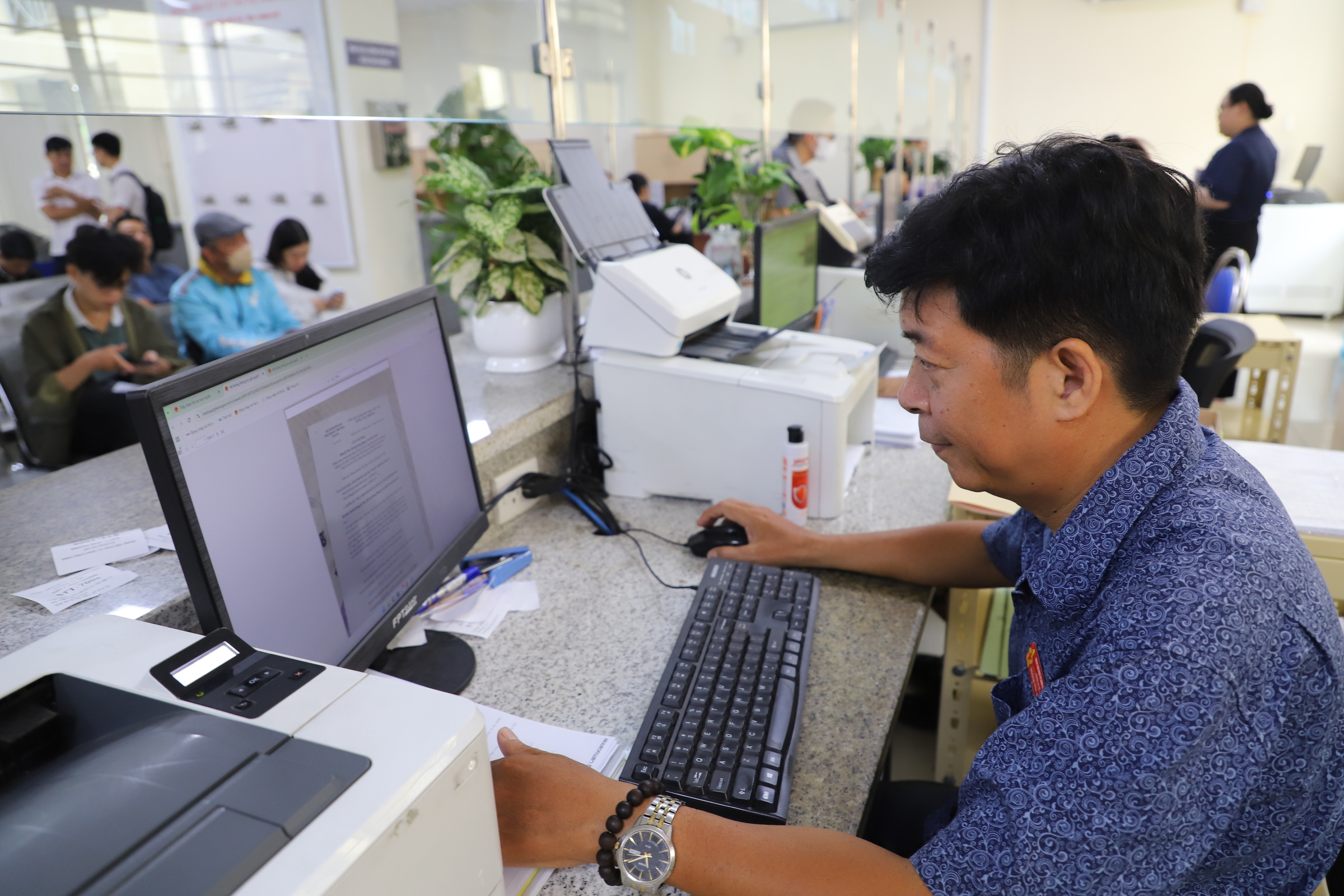 |
Hoach Van Duyen, an officer at the Go Vap Ward Public Administration Center, in charge of industry and trade, enters citizen information into the system from a copy of the application on August 6th. Photo: Le Tuyet |
Hoach Van Duyen, an officer at the Go Vap Ward Public Administration Center, in charge of industry and trade, enters citizen information into the system from a copy of the application on August 6th. Photo: Le Tuyet
Vo Thi Trung Trinh, Director of the Ho Chi Minh City Digital Transformation Center, stated that the city aims to implement location-independent procedures for all services by the end of the year, in accordance with Government Decree 118. From 1/8 to 17/8, the system directly received over 216,500 applications, including nearly 8,700 requests for location-independent administrative procedures.
"Implementing location-independent administrative procedures is a continuous improvement process; initial difficulties must be accepted and gradually addressed," she said.
According to Trinh, digitization is crucial, but it involves more than just scanning paper documents. Data standardization and digital signatures are essential for legal validity. The city also needs regulations for businesses to submit drawings and electronic documents from the outset, gradually transitioning to information verification via national databases instead of paper copies, and eliminating less frequent procedures to reduce in-person visits.
To alleviate the pressure on staff, Trinh proposed establishing "public service agent" models at post offices and banks to receive and digitize documents, with a cost-sharing mechanism to encourage citizens to use digital services.
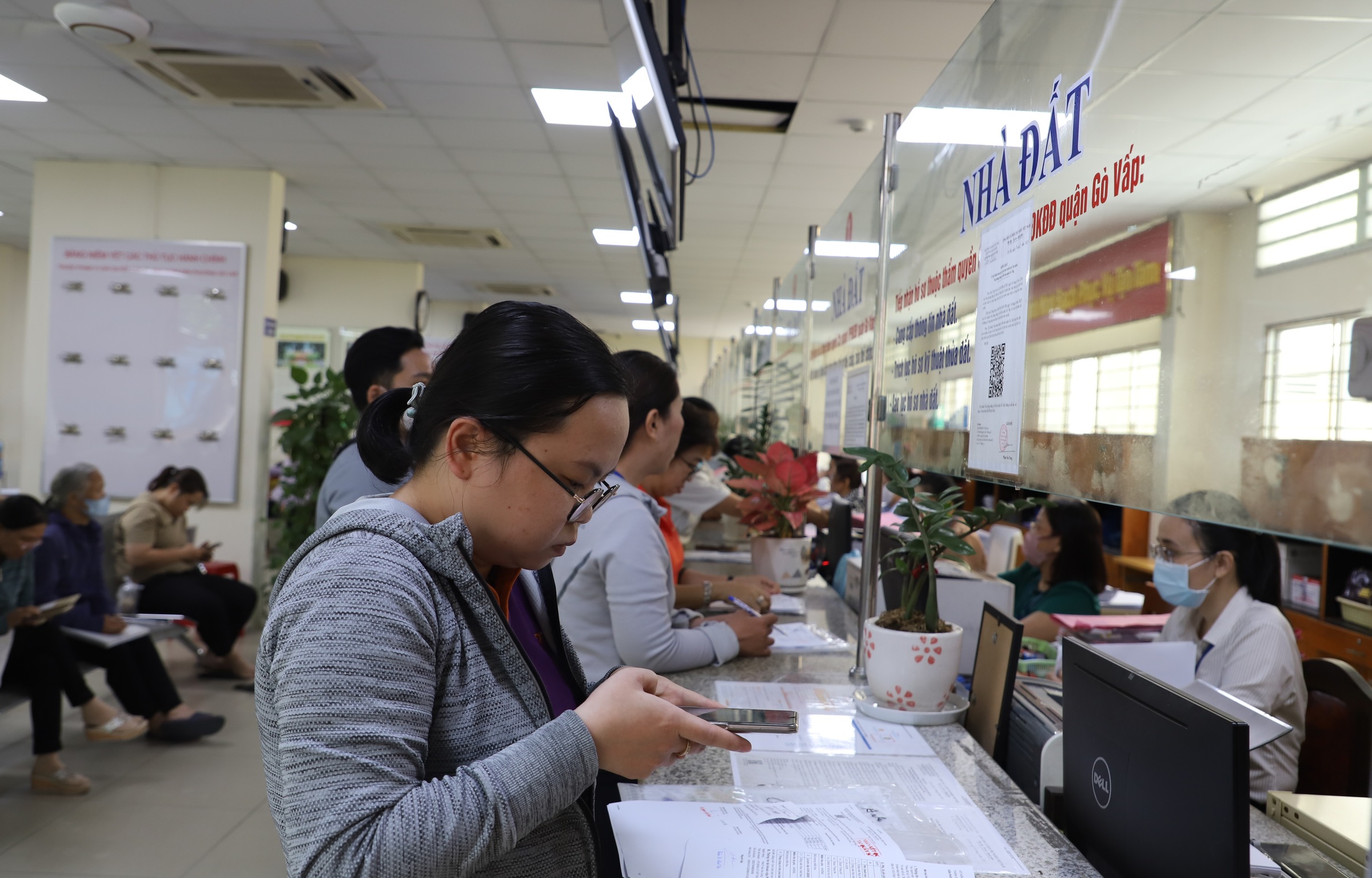 |
Citizens photograph documents with their phones to submit online for real estate procedures at the Go Vap Ward Public Administration Center on August 6th. Photo: Le Tuyet |
Citizens photograph documents with their phones to submit online for real estate procedures at the Go Vap Ward Public Administration Center on August 6th. Photo: Le Tuyet
Nguyen Duc Lam, an expert in Law and State Administration, expressed concerns that the goal of 100% location-independent procedures this year could strain the system if the infrastructure and data are not ready. He suggested prioritizing common, high-volume procedures like criminal records, driver's licenses, household registration, and business procedures, focusing on remote areas where citizens have limited access to direct services.
Meanwhile, Nguyen Quang Dong, Director of the Institute for Policy and Communication Development Studies, argued that efficient location-independent public administration centers will attract more citizens and businesses. "The city must consider the potential increase in workload and how to compensate staff for overtime to incentivize them," he said.
Dong also emphasized that as a leader, Ho Chi Minh City needs to advocate more strongly with the central government for data synchronization between ministries and agencies and upgrading shared technical infrastructure. This is beyond local authority but crucial for the success of the location-independent model.
Le Tuyet



